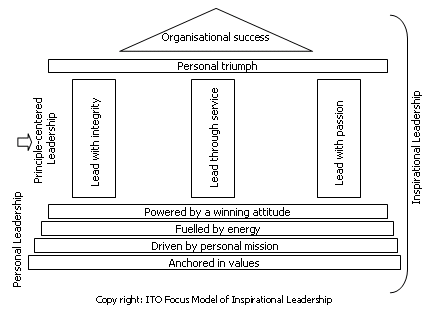
"Passion is a source of unlimited energy from your soul that enables you to produce extraordinary results!" - Charles Kovess
What is passion? Passion is not an intellectual thought. It is a feeling, an emotion.
Mahatma Gandhi had a burning desire or hunger to help his fellow human beings. He had a burning desire to spread awareness of two basic principles – truth and non-violence – and his vision was so powerful that most people in his country indeed eventually adopted these principles. Gandhi was a passionate man, and his passion enabled him to produce extraordinary results.
Click here to view a video on the story of Gandhi and the relevance it has for us today.
When you are inspired by some great purpose, some extraordinary project, all your thoughts break their bonds. Your mind transcends limitations, your consciousness expands in every direction, and you find yourself in a new, great and wonderful world. Dormant forces, faculties and talents become alive, and you discover yourself to be a greater person by far than you ever dreamed yourself to be.
Kahlil Gibran in The Prophet explored this dichotomy between passion and reason he wrote:
“Your soul is oftentimes a battlefield, upon which your reason and your judgement wage war against your passion and your appetite…
Your reason and your passion are the rudders and the sails of your seafaring soul.
If either your sails or your rudder is broken, you can but toss and drift, or else be held at a standstill in mid-seas.
For reason, ruling alone is a force confining; and passion, unattended, is a flame that burns to its own destruction.”
Passionate people do not easily get tired. Which people around you demonstrate such limitless energy? Would you describe them as passionate? Do you envy their energy, their apparent ability to work harder than most people?
The way that we earn a living or work, does not have to be boring, dull, and uninspiring. However, the statistic shows that less than 10% of workers in Australia impress their fellow workers as being passionate – which can easily cause most people to believe that work, almost by definition, is a struggle and something that can only be enjoyed in exceptional or unusual times.
If you are not passionate about your work, then it is hard to see how it could be fun. What would it be like if work was so much fun that you would do it for nothing? Or, alternatively, if you had R10 million in the bank, would you do the work you are now doing? If the answer is ‘yes’, you are clearly passionate.
The spirit of employees can be suppressed in many ways. Wide-eyed, excited youngsters (or even the more experienced veteran) arriving for work on their first day soon fall into the mould of putting up with the daily grind! How can this syndrome be avoided?
Here are some of the deeds by which a leader can demonstrate that his or her employees are important and valuable:
- Commit to their ongoing learning and development and actually do something about it by organizing and investing in relevant programs.
- Understand that attending a training program will not cause radical changes in the employees overnight; a learning program is like a golf lesson: we learn the techniques, but for change to occur, ongoing repetition, practice, and mistakes are also required!
- Give all employees clarity about what is expected of them in the workplace and how their performances will be assessed.
- Give employees the right to complain when the values of the business are not being observed.
- Commit to communicating with employees, and make allowance for their unique perspectives; this includes telling them when they’ve done something right as well as when they’ve done something wrong.
- Commit to a process of giving more trust to the employees. This process, by definition, cannot be achieved overnight, but until the leader demonstrates trust, the employees will not be willing to trust. Trust needs to be built like a brick wall, brick by brick, day by day, and there needs to be a high awareness of how easily and quickly the brick wall can be demolished.
'Unless we try to do something beyond what we have already mastered we cannot grow.’ Ronald Osborn